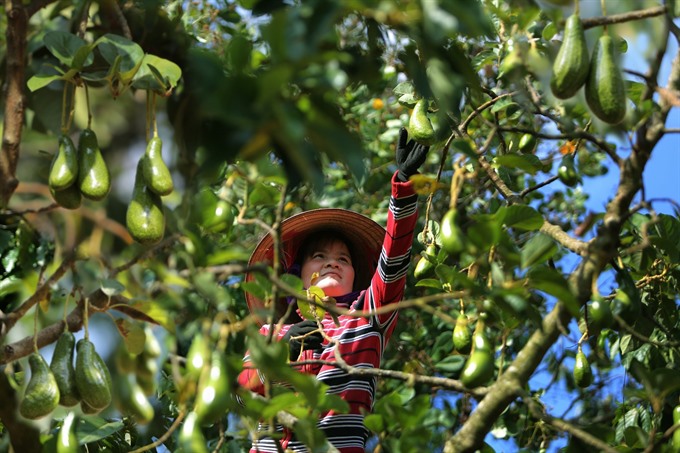The banking sector needs more solutions providing bigger fund for the agriculture and the rural area for sustainable development in the future, according to experts.

The banking sector needs solutions to provide more funding for agriculture and rural areas to ensure sustainable development, according to experts.
The statement was made at the workshop ‘Pro-poor Rural and Agriculture Finance Best Practices: Experiences of Viet Nam’ held by the Viet Nam Bank for Social Policies (VBSP), the Asia-Pacific Rural and Agricultural Credit Association and the International Fund for Agriculture Development in Ha Noi on Wednesday.
The Party, the Government and the banking sector have always paid special attention to finance for farming areas in Viet Nam, Dao Minh Tu, deputy governor of the State Bank of Viet Nam (SBV) told the workshop.
In addition, the Government and the SBV have directed preferential credit programmes for agriculture and countryside areas in domestic credit institutions, he said.
Since 2006, credit programmes of the banking sector for agriculture, rural areas and the poor have been a key part of Viet Nam’s poverty reduction policies.
"Therefore, the credit from the banking sector and other sources has helped Viet Nam achieve the Millennium Development Goals (MDGs) in hunger elimination and poverty reduction in 2002, 13 years earlier than the target,” Tu said.
Over the years, the SBV has instructed credit institutions to balance their capital to meet the demand of farming, and regulate interest rate ceilings on short-term loans to priority sectors. The interest is currently at 6.5 per cent per annum, 1-2 per cent lower than the general interest rate.

The SBV has applied to the Government for the issuance of credit support programmes for agricultural and rural development.
It has also directed credit institutions to implement programmes, policies and credit products to boost access to bank capital for people working in agriculture and rural development.
As a result, credit outstanding for agriculture and rural areas has increased by an annual average of 20 per cent, higher than the overall credit growth of the economy, Tu said. Agricultural and countryside credit programmes have aided agricultural and rural development and farmers’ living standards.
Duong Quyet Thang, VBSP's general director said credit institutions have diversified banking products and services for farmers. Notably, the poor in remote areas have had opportunities to access financial products and services at a reasonable cost.
Under the national target programme on sustainable poverty reduction, the VBSP was assigned to provide credit for poor households and social assistance beneficiaries.
"Meanwhile, the VBSP has provided 20 credit programmes for agriculture and countryside areas, including lending for the poor and near poor, according to the bank. In the first half of this year, the bank had total outstanding loans of VND181.8 trillion (US$7.75 billion), 90 per cent for agriculture and the rural areas," Thắng said.
However, the Viet Nam Bank for Agriculture and Rural Development (Agribank) deputy general director Nguyen Thi Phuong said investment in rural agriculture has been limited and not met demand. Private investment has been small while the nation has had few enterprises operating in the agricultural sector, most of which are small-scale.
In addition, agricultural production is often affected by natural disasters, climate, diseases, environmental pollution and climate change.
Agribank has proposed increased investment in farming, especially from the State budget for infrastructure, science and technology as well as input products.
In addition, the ability of credit organisations providing financial services for non-urban areas should be strengthened to ensure safety, efficiency and responsibility in operation, especially, VBSP and Agribank being major loan providers for agriculture and rural areas.
The State should promote the development of micro finance institutions and non-banking credit institutions to diversify channels providing finance services, she said.
Nguyen Quoc Hung, director of SBV’s Credit Department of Economic sectors said VBSP should modernise in operation and integrate into the regional and global banking system to help customers approach modern financial products and services.
Meanwhile, the SBV will continue to implement monetary policy to support credit institutions in promoting loans for the agriculture and the rural area.
The SBV will also instruct credit institutions to accelerate administrative reform, simplify lending procedures and diversify banking products and services for rural people and firms. — VNS





